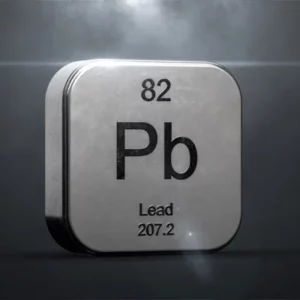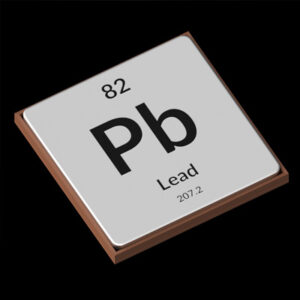
Spring Water Minerals: Essential Elements for Optimal Health
- Published:
- Updated: April 9, 2024
Summary
Spring water, sourced directly from natural springs, is prized for its pristine quality and essential mineral content. Unlike tap or bottled water, spring water undergoes natural filtration, retaining valuable minerals like calcium, magnesium, and potassium. Understanding the benefits and considerations of consuming spring water is crucial for maintaining optimal health.
- Natural Mineral Content: Spring water boasts essential minerals like calcium, magnesium, and potassium, vital for bone health, nerve function, and electrolyte balance.
- Tap Water vs. Spring Water: While tap water undergoes chemical treatment that may strip away minerals, spring water retains its natural profile, offering a fresh taste and mineral boost.
- Sourcing and Safety: Collecting spring water directly requires precautions to ensure safety from contaminants. Commercial brands should transparently disclose testing and filtration processes to guarantee quality and purity.

In the pursuit of optimal health, the quality of the water we drink often gets overlooked. Yet, it is a vital aspect of our wellbeing. Spring water, a natural resource that bursts forth from the earth, is often heralded for its pristine quality and mineral content. This type of water is naturally filtered as it seeps through layers of underground rocks, which also endow it with essential minerals. As a result, it’s not just hydration that spring water offers, but also a nutrient boost that plays a crucial role in maintaining our health.
Interestingly, spring water is different from other water types such as tap water, distilled water, or purified water. It is sourced directly from natural springs and is valued for its purity and mineral content, which are not present in the same forms in other water sources. Unlike tap water, spring water undergoes a natural filtration process, bypassing the need for any chemical treatment.
Minerals and Their Role in Human Health
Our bodies are remarkable machines, and minerals are the oil that keeps the gears moving smoothly. They play an array of roles, ranging from maintaining bone health to ensuring the proper functioning of our nervous and immune systems. With spring water, you are not just quenching your thirst but also nourishing your body.
- Calcium: Beyond its well-known role in bone health, calcium is also essential for blood clotting, muscle function, and transmitting signals in the nervous system.
- Magnesium: This unsung hero of the mineral kingdom is involved in over 300 enzymatic reactions. It helps synthesize proteins, regulate blood sugar levels, and maintain nerve and muscle function.
- Potassium: It’s an electrolyte that conducts electricity in your body, aiding in a range of essential functions like heart rhythm, muscle contractions, and acid-base balance.
Spring Water vs. Tap Water

The debate between spring water and tap water is one that involves considerations of mineral content, taste, and safety. While tap water is treated to remove contaminants, the process often also strips away beneficial minerals. On the other hand, spring water retains its natural mineral profile.
Moreover, tap water in many regions may contain traces of chemicals like chlorine used in the treatment process. Spring water, devoid of such additives, offers a crisp, fresh taste that many people prefer. However, it’s crucial to ensure that spring water is sourced from a clean, uncontaminated spring, as it can also contain harmful bacteria or pollutants.
Spring Water vs. Bottled Water
Bottled water is often the go-to choice for those concerned about the quality of their tap water. However, it’s essential to understand that not all bottled water is created equal. Many brands simply use filtered tap water, which may lack the natural minerals found in spring water.
Further, the environmental impact of bottled water can’t be ignored. The production and disposal of plastic bottles contribute significantly to pollution and resource depletion. Spring water, especially if sourced locally and stored in reusable containers, is a more sustainable option. However, just like with tap water, the safety and quality of spring water depend on its source being free from contamination.

How to Source and Store Spring Water Safely
Sourcing spring water directly can be a rewarding experience, not just for the health benefits but also for the connection it fosters with nature. If you’re fortunate enough to live near a natural spring, you can collect water yourself. Various online resources can help locate springs in your area.
When collecting spring water, be sure to use clean, preferably glass containers, and seal them tightly. Once home, store the containers in a cool, dark place. If you’re unsure about the water’s safety, consider having it tested for contaminants before drinking.
Commercial Spring Water: What to Look For
When it comes to buying spring water, not all brands are equal. Some key factors to consider include the source of the water, the company’s transparency about its testing and filtration processes, and the type of packaging used.
Look for brands that clearly state the water’s source and avoid those that use vague terms like “mountain water.” Companies should also be transparent about any testing or treatment the water undergoes to ensure its safety. Finally, consider the packaging. Glass is the preferred option as it doesn’t leach any chemicals into the water, unlike some types of plastic.
What are the potential risks and downsides associated with consuming spring water?
While spring water has many benefits, it’s also important to be aware of potential risks. The primary concern is contamination, as springs can be affected by both natural and human-made pollutants. Bacteria, viruses, and chemicals from agricultural runoff or industrial waste can all contaminate spring water.
If you’re sourcing spring water directly, it’s a good idea to have it tested regularly. Commercial spring water should meet regulatory standards, but it’s still wise to do your research and choose reputable brands.
Share this on social media:















